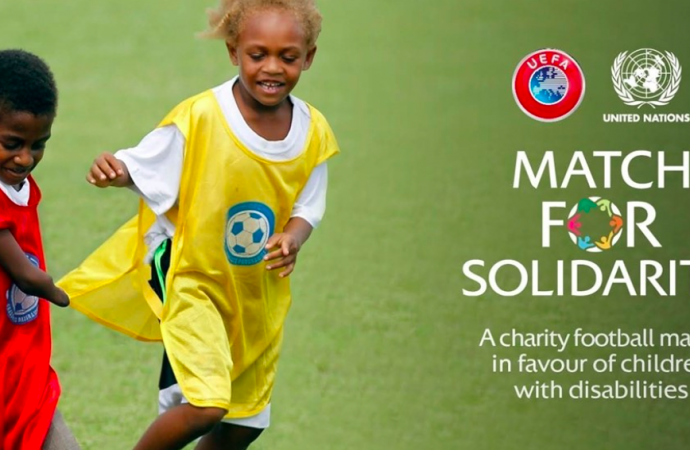Sport development organisations must demonstrate financial benefit of being involved in sustainability initiatives, says Sustainable Development Goals Fund
Organisations in the sport for development space have to show private sector companies that supporting their initiatives will help company profits, rather than enhance their corporate social responsibility credentials.
That’s one of the recommendations made by the Sustainable Development Goals Fund in its new Toolkit for Action, titled The Contribution of Sports to the Achievement of the Sustainable Development Goals.
The toolkit emphasises the importance of securing financial backing from the private sector in order to help sport become a driver for the United Nations’ Sustainable Development Goals (SDGs) (below). But development organisations must show the full financial benefit of being involved in sport, particularly marketing opportunities presented by a large worldwide base of sports fans.
Private sector businesses, says the toolkit, will also be more interested in a project if it tries to achieve multiple SDGs. It gives the example of Hublot, the Swiss watch company, sponsoring the UN and UEFA Match for Solidarity earlier this year because it targeted three SDGs – reduced inequality, good health and quality education.

Partnerships between sports development organisations and private sector businesses must also work to address developmental gaps – such as gender, poverty and disabilities – that governments are unable to. However, the document recommends governmental involvement, urging politicians to create policies that “favour and encourage” these collaborations.
According to the framework, there are “several untapped opportunities” for accessing private sector funding. It demonstrated a partnership between the Cleven Foundation and confectionary giant Nestle that helps Swiss schools provide more physical activities in order to reduce sedentariness among students.
Another cross-sector partnership example shown in the report is UEFA, FedEx and Spanish sport development organisation Red Deporte y Cooperación working on a project to a deliver brand new, environmentally sustainable football complex in one of Madrid’s most deprived districts.










Leave a Comment
Your email address will not be published. Required fields are marked with *